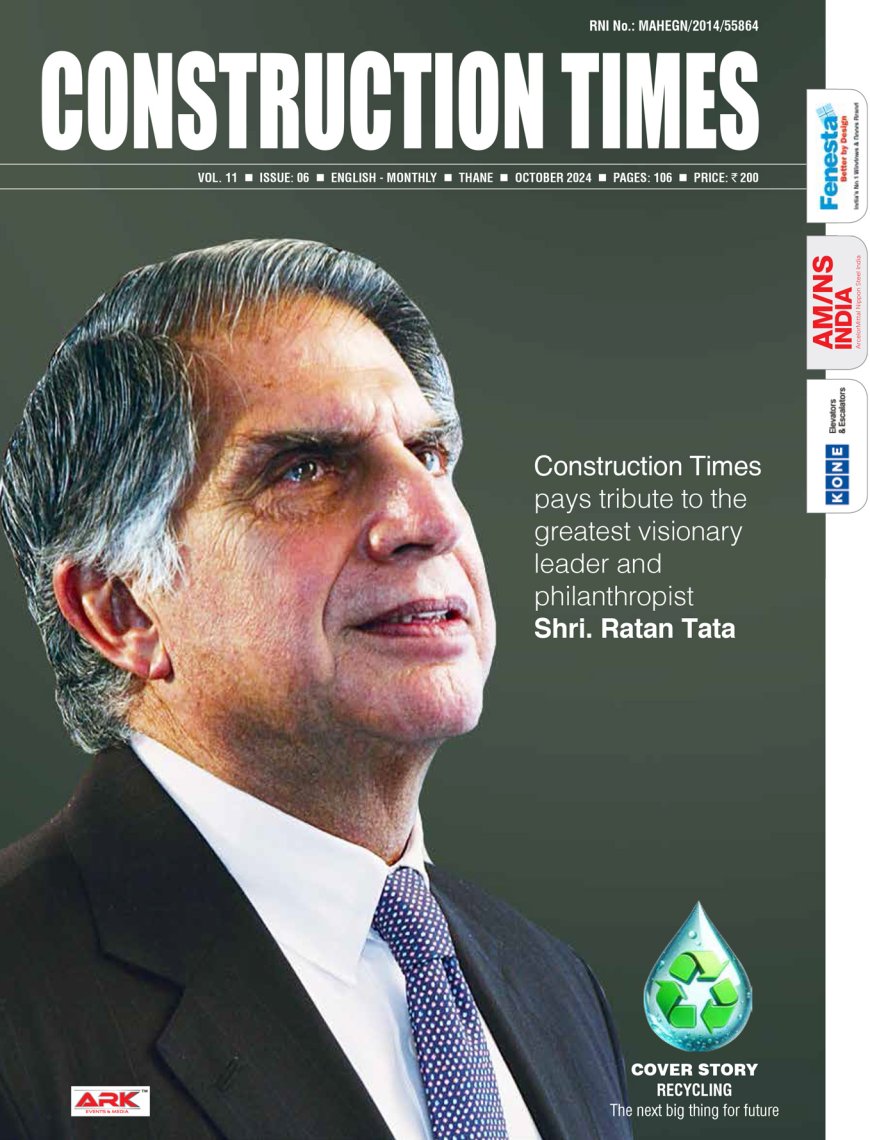We need to have an open mind and accept the new set-up and way of working.
Real estate industry will have to function with enhanced automation and mechanization. - Dr. Niranjan Hiranandani, President (Nation) NAREDCO & President, Assocham What is your assessment on the scope and opportunities of transforming the construction industry more automated and digitalized post Covid-19? The scope is wide, opportunities are many. At the


Real estate industry will have to function with enhanced automation and mechanization.
- Dr. Niranjan Hiranandani, President (Nation) NAREDCO & President, Assocham
What is your assessment on the scope and opportunities of transforming the construction industry more automated and digitalized post Covid-19?
The scope is wide, opportunities are many. At the primary level, it is about reducing input from the human interface; at two distinct levels - planning and design / architecture and actual construction.
In the construction aspect, Indian real estate has a lot to catch up with. Migrant labour has brought in challenges during the Covid-19 pandemic; post the lockdown, real estate will have to function with enhanced automation and mechanization when it comes to construction. The technology is available; some developers are using some parts of the overall mechanization package. Now it will have to be a holistic way of leveraging mechanization to reduce dependence on human labour.
It is not just about mechanization for construction, it is also adoption of digital technology and platforms powered by big data, machine learning (ML), artificial intelligence (AI), the Internet of Things (IoT) - to power sales and marketing, to power customer relationship, to enhance creativity in architecture and the design form; virtual testing as also 3-D walk-throughs of show flats… it will be a quantum jump. Many real estate companies have been using some of these. The lockdown has ensured that the 'whole package' gets implemented, and developers are pleased with the results. So yes, scope is wide and opportunities are many.
What do you think the major pain points for this transition and your suggestions to address those?
The suggestion is to have an open mind and accept the new set-up and way of working. Any change brings with it the pain of moving out of existing comfort zones. Real estate companies who have been implementing some parts of the mechanization and automation / digital options, are used to falling back on human interface. They rely on the human factor to carry out most of their work. This mindset has to change, it has to be digital from the starting point, and automated / mechanized all through.
This change in mindset will be most challenging. Actual work schedules will gradually adapt, but the primary challenge will be adopting digital as the base. When my company did a high-rise tower project in Dubai some years ago, it was a learning experience. The extent of digital planning, the enhanced usage of technology and automation in the actual construction - it was like going back to school for most of the team which had gone to the Dubai site from India. We learnt, we all learnt - and to the maximum extent possible, brought that learning to our sites in India. The challenge is to have an open mind, to accept digital as the platform, powered by big data, machine learning (ML), artificial intelligence (AI), the Internet of Things (IoT). Once you get used to the aspect of 'virtual' being translated into 'actual', you're almost there.
What contributory role your company has been playing for this transition?
For the Hiranandani Group of Companies, the Dubai high-rise tower - at the time it was built, the world's highest residential tower - was the 'practical initiation' into real estate planned and designed by digital as the platform, powered by big data, machine learning (ML), artificial intelligence (AI), the Internet of Things (IoT), constructed using mechanization and automation. We brought the learning back to India, implemented the same on our sites - and shared the learning with the industry. Having access to the technology is one part; showing how it is done, practically - that is what we have done till now, and will continue to do, going ahead.
Hits: 240















